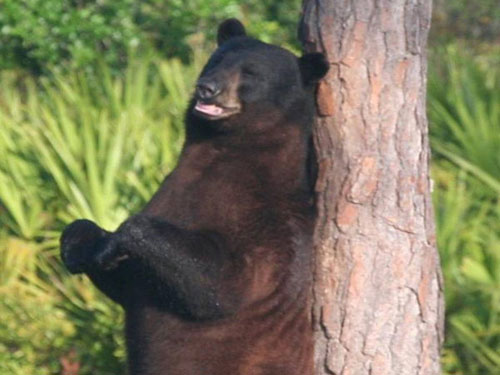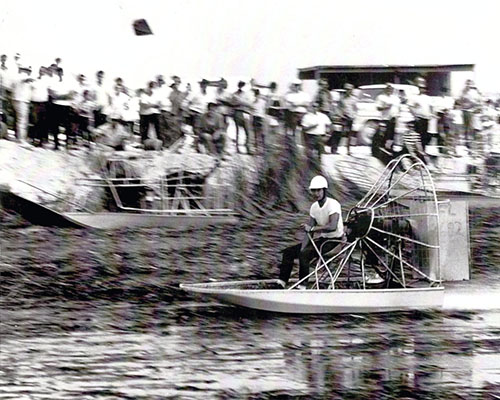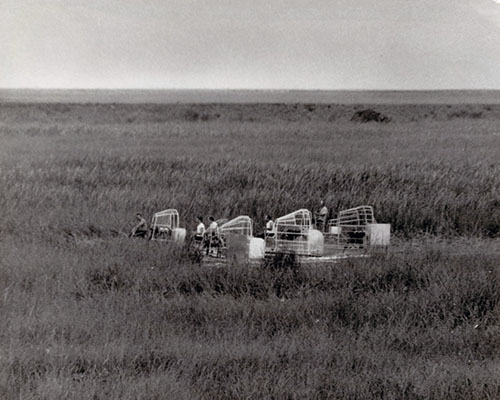 In a surprise move, the Florida Fish and Wildlife Conservation Commission voted 4-3 late Wednesday to hold off on having a second bear hunt later this year.
In a surprise move, the Florida Fish and Wildlife Conservation Commission voted 4-3 late Wednesday to hold off on having a second bear hunt later this year.
The vote marks a major change from last year, when the wildlife commissioners voted 6-1 to go ahead with Florida’s first bear hunt in 21 years, which was held in October despite strong public opposition.
The change in attitude was made more remarkable by the venue for Wednesday’s all-day meeting, the tiny Panhandle town of Eastpoint, where two of Florida’s five bear attacks on humans have occurred. Commission executive director Nick Wiley said that was just a coincidence.
In fact, the first speaker during the public hearing was the mother of one of the two mauling victims. She was very much in favor of a second hunt.
Leading the charge for the delay, however, was Commissioner Ron Bergeron, who was the lone no vote last year. Bergeron, who lives in Broward County, is a builder, developer and avid outdoorsman who once got in trouble for wrestling an alligator.
“We have to do what’s best for the bears,” he said, urging the staff to provide scientific answers to some of the questions raised during the hearing, as well as seeing how better garbage-can management and habitat protection may work out.
He said he wanted to ensure the state was allowing the hunting of bears that were excess to the habitat, not just allowing hunting for the sake of hunting.
The debate over whether to hold a second hunt drew more than 100 people to a high school gym in Eastpoint, which has a population of about 2,000. The bear hunt discussion began about 10 a.m. and, with a 90-minute lunch break, continued until the final vote at 8:15 p.m.
Last October’s hunt was scheduled to last a week. The hunt ended abruptly after just two days. Hunters had killed 304 of the 321 bears allowed, and wildlife officials feared they might exceed the quota.
The hunt generated tremendous controversy, with a large majority of those who commented on the proposal opposing it.
Further fueling the controversy was the fact that hunters killed 36 lactating females, which hunt opponents said meant they had left orphaned cubs that would die, too. Wildlife commission biologists said the cubs would be old enough to survive.
Elizabeth Fleming of Defenders of Wildlife, who had urged commissioners to hold off on a second hunt for a year, said the way the first hunt went had hurt the agency’s credibility.
By waiting a year, the commissioners showed that they are listing to the public and paying attention to the need for other measures to deal with the bear population, Fleming said.
The commission staff offered four options. One was to hold another hunt exactly like the one last fall. Another called for banning all bear hunting, as was the case prior to 1994. A third, supported by the Florida Wildlife Federation, Defenders of Wildlife and other environmental groups, was to skip a 2016 hunt to give more in-depth scientific studies and other measures more time.
The fourth alternative, recommended by the commission staff, was to hold a hunt but to make it far more limited than last year’s. For instance, the hunt would be split up into three “phases” of a few days each, and hunters would be limited to only participating in one phase.
That proposal drew support from vice chairwoman Liesa Priddy, who bought a bear hunting permit last year but did not use it, and two other commissioners.
In the end, the deciding vote came from chairman Brian Yablonski, a utility lobbyist who co-wrote a book with former Gov. Jeb Bush. Yablonski said he felt good about the science that the staff had used in recommending a second hunt, but “we as commissioners don’t have to make decisions based solely on science.” As a policy matter, a pause made sense, he said.
Wednesday’s daylong discussion lacked the circus-like atmosphere of last year’s commission meetings on the topic. No one dressed as a bear this time around. Instead, opponents of a second hunt focused mostly on raising questions about the first one and urging a delay, not an outright hunting ban.
The speakers included 11-year-old Chloe Diefenbaugh of Palm Harbor, who urged a delay so the commissioners can see whether new, improved garbage cans can put a stop to bears marauding through suburban areas.
Fleming said she’s sure that next year the commissioners will be even more determined to schedule a hunt for 2017.
Craig Pittman can be reached at craig@tampabay.com. Follow @CraigTimes.
Source: http://www.miamiherald.com/news/local/environment/article85428442.html




